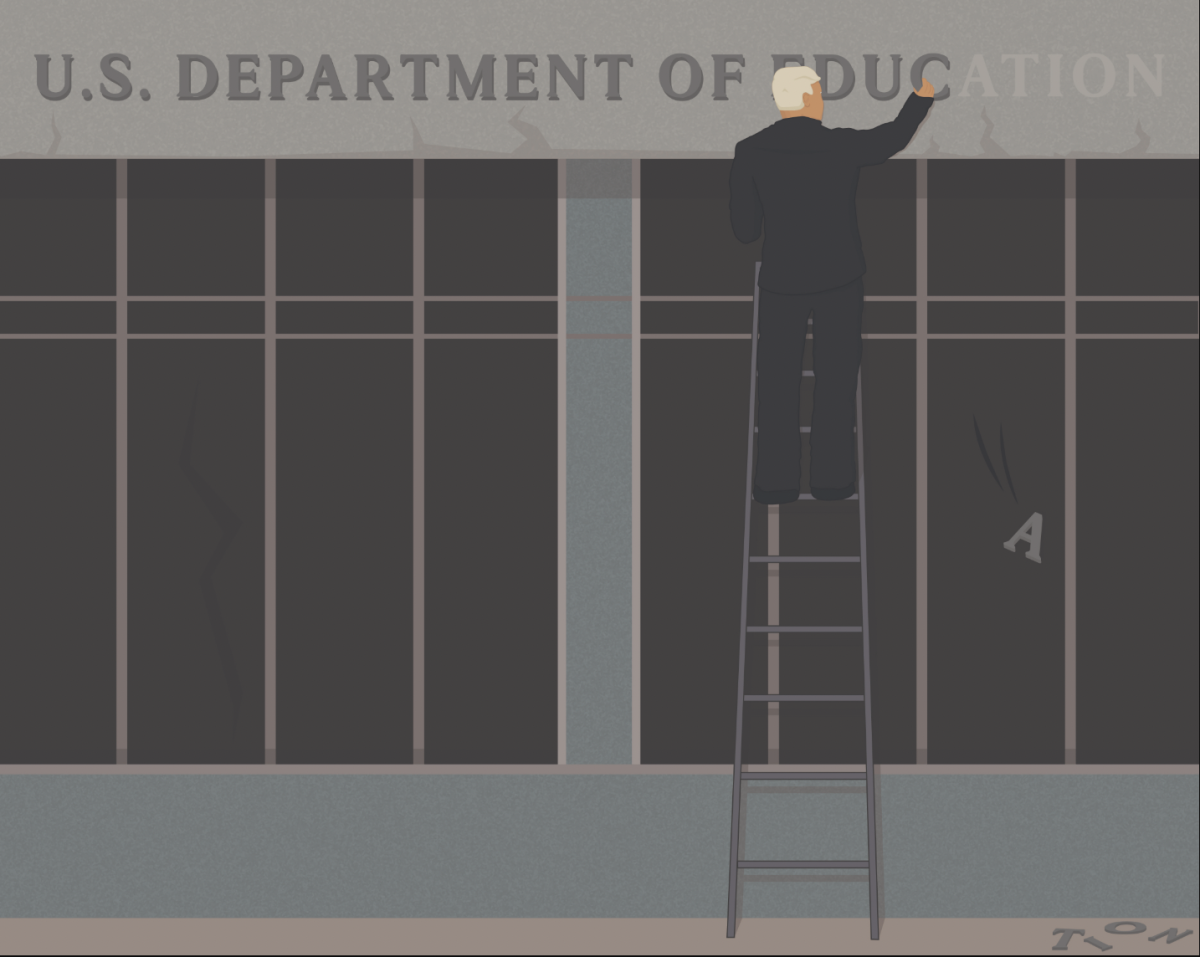On March 20, President Donald Trump signed an executive order to dismantle the U.S. Department of Education and return educational authority to the states.
This decision threatens students by bringing instability to aid and derails Texas State by removing the federal support necessary for funding research, promoting equity and maintaining competitive academics.
This federal rollback has the potential to reverse years of academic progress while increasing challenges existing within our current education system. Students have greatly benefited from policies implemented by the Department of Education and rely on its continued existence for quality education.
The Department of Education was established by Congress in 1979, with the mission of ensuring equal access to education, supplementing state funding and providing oversight to improve educational outcomes across the nation. By dismantling this institution, the government risks jeopardizing the nation’s commitment to education and the prosperity gained from an educated population.
If the federal government gets past the legal hurdle of the department’s removal, there will be a significant impact on student aid. The Department of Education manages $1.6 trillion in federal student loans. At Texas State, where roughly 65% of students rely on some form of federal assistance, it is necessary for this funding to continue uninterrupted.
“I rely on financial aid, including FAFSA and Pell Grants, to attend Texas State. Without that support, I just wouldn’t be able to afford my education here,” Scarlett Webster, finance freshman, said.
The administration’s proposal to shift student aid to the Treasury Department or the Small Business Administration would almost certainly cause delays in processing loans, disrupting the financial stability of students and raising additional costs to students already burdened with debt.
The lack of federal funding could hinder Texas State’s efforts to achieve R1 research status. In 2023 alone, the university received $23 million in federal grants allocated to research projects. Without funding, Texas State’s growth and academic development are at risk, as well as the university’s R1 initiatives.
This expanded research funding does not just benefit the university but also increases students’ opportunities. Research funding leads to better facilities and access to hands-on research beneficial for future employment. Funding also enhances the prestige of the university, which ultimately makes a degree from Texas State more valuable.
The argument for returning education to the state level overlooks significant risks, particularly for disadvantaged students who rely on federal protection through Title IX, IDEA and ESSA. These initiatives serve to ensure equity, but without federal oversight, there is potentially diminished accountability.
Additionally, there is an increased risk of economic disparity in higher education. States have historically struggled with disparities in school funding, particularly in lower-income areas where funding is tied to local taxation. The department helps fill these funding gaps by granting students the necessary access to education.
While there are challenges with the current educational model, dismantling the department would have grave consequences. Working within the existing framework to address these shortcomings would prove far more effective and pose less harm to institutions like Texas State, which rely on federal funding to operate and protect students.
Dismantling the Department of Education is not just a policy shift, but a threat to students. With its removal, vital resources necessary to make campuses safe, inclusive and competitive will diminish.
“I definitely feel worried. These federal programs are my only opportunity to be here as a student. These cuts bring a lot of uncertainty, and I don’t know what students will do,” Webster said.
-Andrew Bencivengo is a business administration sophomore




















